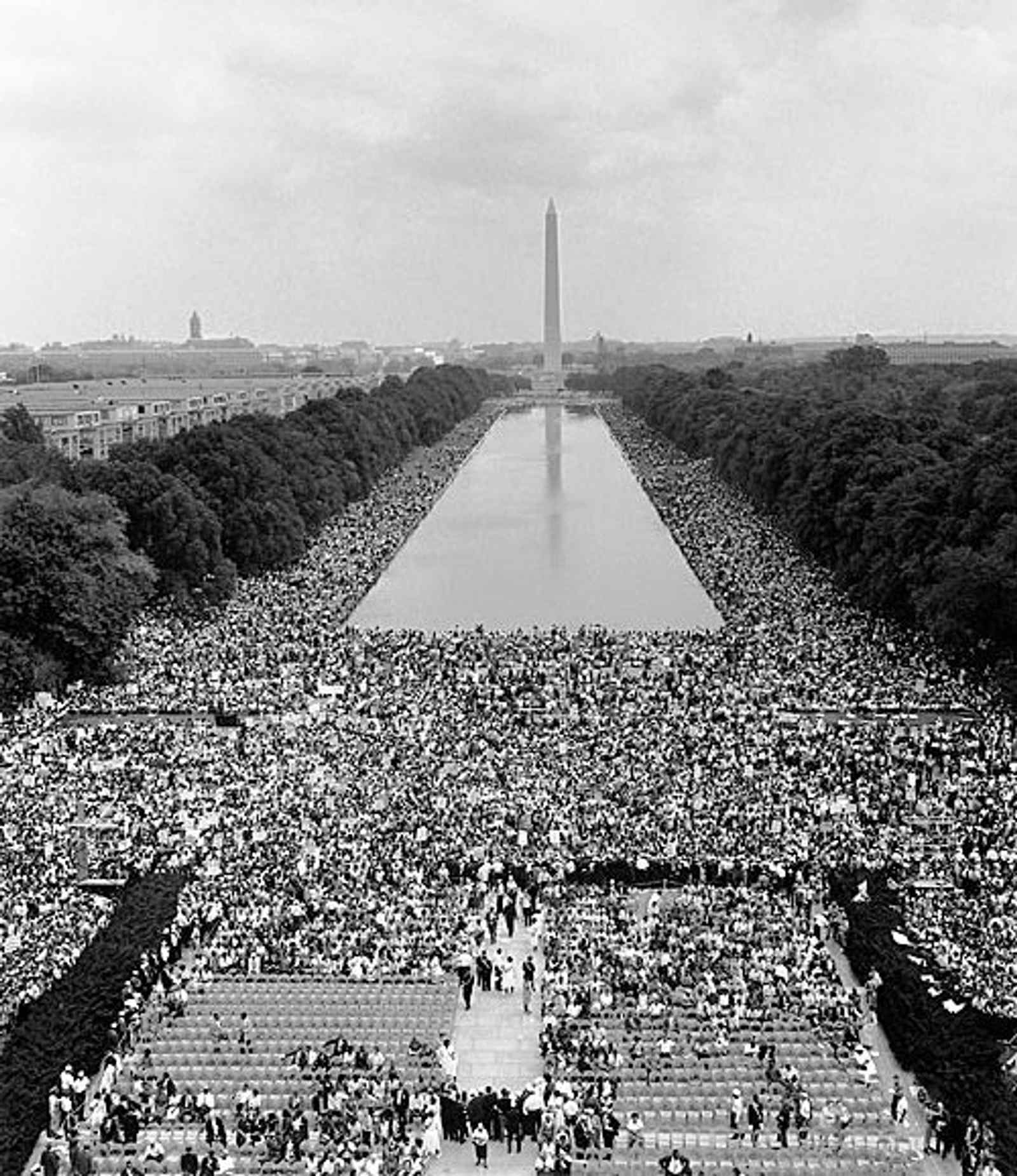Hate Cannot Drive Out Hate; Only Love Can Do That
The 55th anniversary, this August, of the 1963 March on Washington for Jobs and Freedom, presents a worthy occasion for reflection and remembrance. Likewise, April marked the 50th anniversary of the assassination, in Memphis, of the March’s keynote speaker.
Had history gone a little differently, June 25 or thereabout might mark the seventy-seventh year since the March on Washington was held. Dr. King was 12 in 1941 – not yet in high school.
One can speculate who might have spoken, and what they might have said, had the March been held three days after the Wehrmacht and Luftwaffe launched Operation Barbarosa into the heart of the Soviet Union. That was also less than a week after the first contract between the UAW, the CIO, and Ford was signed. With World War II rapidly approaching, President Roosevelt averted some difficult political optics by cutting a deal that postponed the March on Washington, which organizers had intended to hold in June 1941.
At the urging of March organizers, including A Philip Randolph and Bayard Rustin, President Roosevelt signed Executive Order 8802, directing that national defense industries be desegregated. As it turned out, the March was delayed for over two decades. A vast migration commenced from the Mississippi River delta, Appalachia, and other places, to industrial cities such as Detroit, Chicago, Warren, and Cleveland, to facilitate the ramp-up of wartime production.
Randolph, a leading labor organizer, also is remembered as one of the signatories of the Humanist Manifesto II in the early 1970s. Like some of our nation’s founders, Randolph was intensely private about his own religious views, but some detractors derided him for atheism – a label that was probably true but not broadcast by Randolph. He serves as a shining example how nonreligious people not only can serve as moral exemplars, but often are willing to do and risk as much or more than any religious believer to advance the cause of human progress.
Rustin, too, was far from traditionally religious, although he did identify as a Quaker and as a Christian. Rustin was unapologetically gay (and for part of his life, openly so), at a time when acceptance of homosexuality among African Americans, as well as American society as a whole, was considerably less widespread than today.
Rustin was one of the initial organizers of the Freedom Rides, starting in 1947. During World War II, he personally traveled to California to help protect the property of Japanese Americans when they were involuntarily relocated to internment camps – a measure denounced as unconstitutional by most lawyers and scholars, even before Korematsu v. United States, 323 U.S. 214 (1944), was formally repudiated by Congress in the Civil Liberties Act of 1988.
Dr. King is remembered for traveling to India in 1959 – which journey included meeting friends and colleagues of Mohandas Gandhi, to learn from them about Gandhi’s philosophy of Satyagraha (literally “truth force”), or nonviolent resistance as a strategy for social change. Gandhi, by that time, was not with us due to an assassin’s bullet in 1948. This visit to India was not the first King had heard of Gandhi’s philosophy. Bayard Rustin helped advise Dr. King during the Montgomery Bus Boycott, and by that time both Rustin and his mentor Randolph were advocates for and practitioners of the principles of nonviolent resistance. Rustin, too, had visited India, in 1948, shortly after Gandhi’s death, also to learn Satyagraha. In 1955, the American Friends Service Committee published a pamphlet titled “Speak Truth to Power: A Quaker Search for an Alternative to Violence,” and Rustin served anonymously on the task force that helped write it.
Dr. King, in his autobiography (emphasis added), later recounted the importance of Satyagraha and of nonviolence principles to the American civil rights movement:
"Like most people, I had heard of Gandhi, but I had never studied him seriously. As I read I became deeply fascinated by his campaigns of nonviolent resistance. I was particularly moved by his Salt March to the Sea and his numerous fasts. The whole concept of Satyagraha (Satya is truth which equals love, and agraha is force; Satyagraha, therefore, means truth force or love force) was profoundly significant to me. As I delved deeper into the philosophy of Gandhi, my skepticism concerning the power of love gradually diminished, and I came to see for the first time its potency in the area of social reform. ... It was in this Gandhian emphasis on love and nonviolence that I discovered the method for social reform that I had been seeking."
Fast forward to today. Michael Curry, an American bishop, a black man born in Chicago (presumably, not an accidental choice of symbolism) echoed the words and philosophy of Dr. King, while addressing the assembled elite of British royalty, at the wedding of Prince Harry and the now-Duchess of Sussex. Just as the marriage of King Edward VIII to Wallis Simpson (an American and a divorcée) was controversial in its time, at least some English subjects were not completely comfortable with Prince Harry marrying not only an American, but a woman who had previously married and divorced, and one whose mother does not claim all-European ancestry.
To their credit, the wedding organizers embraced the controversy and addressed it head-on, with help from Dr. King – whose words were central to Curry’s sermon about the capacity of truth and love to exert a kind of power or force to change the world for the better.
Gandhi, Rustin, and others would presumably all be gratified to hear these principles spoken emphatically in St George's Chapel at Windsor Castle by a man whose ancestors, at least some of them, personally experienced the transatlantic slave trade and life as property on colonial plantations. So much the better to hear those words spoken with the apparent public approval of the very British monarchy whose rule over India Gandhi spent much of his life resisting.

